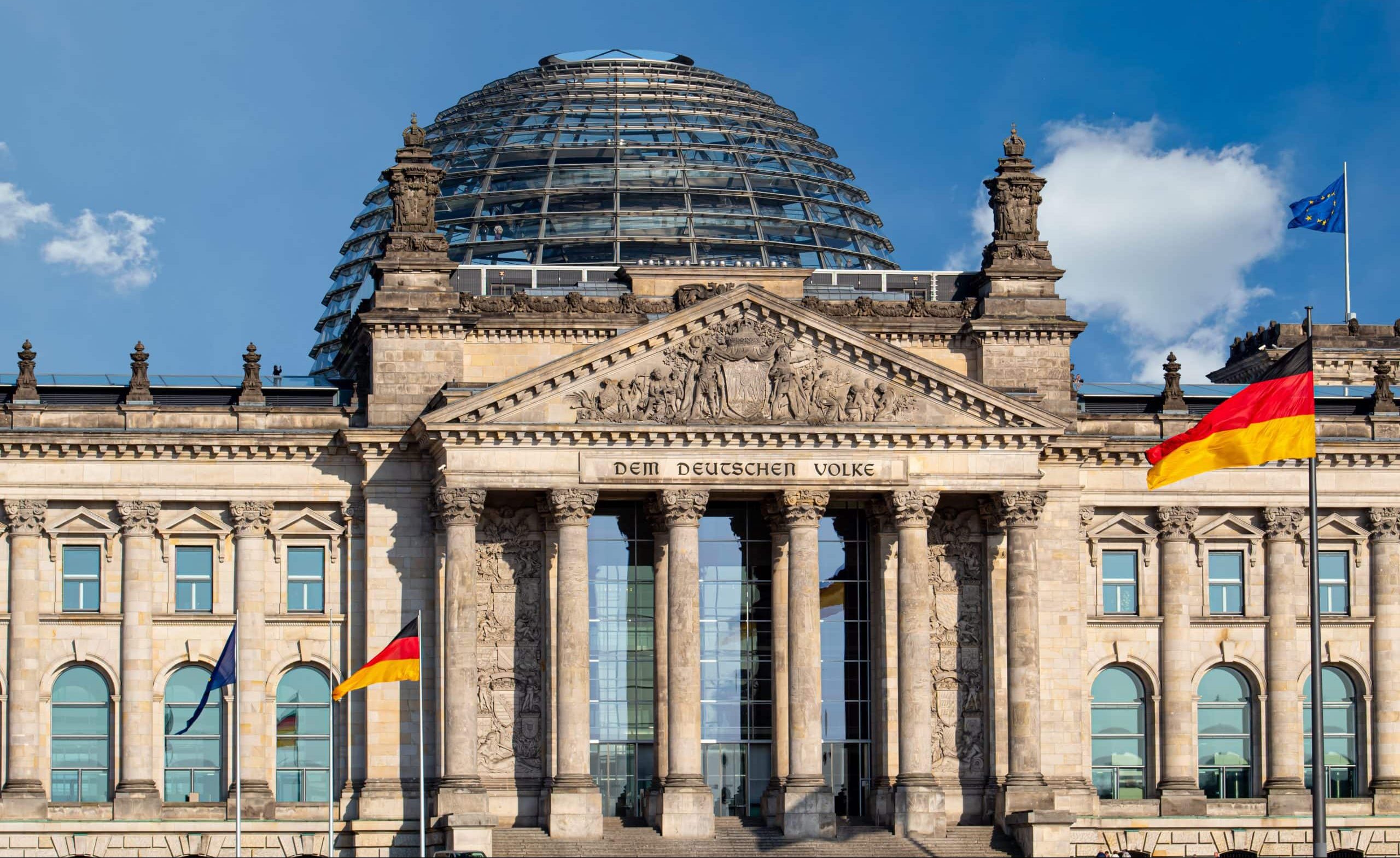Hills of files, bureaucratic processes and endless processing times: the democratic right of citizens to control management exists only on paper. In fact, getting to know the administrative processes in Germany is a difficult road. A technology often reduced to cryptocurrency, distributedLedgers-technology. Instigated by the FDP parliamentary group, the Technology Assessment Office of the German Bundestag published a report on the opportunities and risks of artificial intelligence and distributed ledger technology (DLT) in public administration. The report was presented in the German Bundestag on Thursday. The results reveal.
Decentralized records management and DLT types
DLT – or blockchain technology – describes a type of decentralized record management. The registry is stored on multiple nodes. Anyone can view the database and make registry entries in public DLTs. This only seems appropriate to manage in a few cases. Not because everyone can see the database, but they can change it. Because data stored in DLT can be viewed by everyone, but not necessarily readable, data can be stored in encrypted form. In private DLTs, only a limited group of actors can view and change the database. The hybrid form is the so-called public permissioned networks, which represent publicly accessible databases with limited write permission. The last two types probably come into consideration mainly for administrative operations. The Office of Technology Evaluation highlights the potential of DLT for management. It can enhance the automation of records at all administrative levels thus increasing transparency and efficiency in records. In public administration, many organizations at various administrative levels are often involved in keeping records. In standardized processes, data is used and changed, but not exchanged. An elegant use case for DLT solutions, as they are tamper-resistant and non-repudiation.
Enough theory, concrete applications
DLT applications can improve many previously complex paper processes in public administration and perform faster and more secure document verification with fewer resources. In purchases, for example, compliance with human rights and environmental standards can be checked and adhered to, and payment only begins if compliance is observed. DLT ensures data integrity and automation; However, the integrity of the data source must be ensured. Notarized powers of attorney and inheritance certificates can be issued via DLT and in this way it can be determined if a power of attorney or inheritance certificate is still valid at a given time.
The German authorities lag far behind
If you ask the German authorities, there is no such possibility. In the official Germany-wide survey entitled “Future Panel State & Administration”, a third of those questioned stated that they were unable to assess a DLT. The highest decision-makers and authorities were questioned. He testified that the Anti-Terrorism Law was of low importance at all administrative levels. Other countries are more advanced here and are already running pilot projects. For example, e-ID in Estonia is not based on DLT, it has been around since 2002, but in the DLT-like e-Estonia application, general administrative services are provided in digital form. Estonians can already take part in electronic elections, digitally register their place of residence or register a car without going to the office. 95% of tax returns in Estonia are submitted digitally and it takes an average of three minutes. When the tax return comes around every year, German taxpayers dream about it.
From education to football to land registry
The Maltese Ministry of Education relies on the DLT solution to verify final certificates and certificates. Participating organizations receive digital keys and are recorded on the blockchain that only they can issue certificates. Users receive a digital ID and can share their certificates via an app (free). In Groningen, the Netherlands, vouchers for low-income citizens are being processed via the Zcash blockchain solution. Transactions are checked for authenticity using zero-knowledge mechanisms without revealing information about the identities of the partners involved. In Sweden, the Cadastre and Land Registry are implemented using DLT. Data such as purchase contracts or ownership transfers are stored in the blockchain and can be viewed by the public. After all: also in Germany, the Alliance in the Alliance Agreement approved a feasibility study for a land registry on the blockchain.
Use public infrastructure instead of digitizing management in a planned economy
Instead of relying on an active developer community in the blockchain space, the last government gave us the Online Access Network (OZG) in 2017. By the end of 2022, 575 administrative services should be available digitally. In August, 49 of these services were fully digitized, and 207 had a “PDF maturity level”. The reason for this is the mass back-and-forth and perhaps also the reaction of the authorities, who do not want to do without their traditional methods of work. We need an administrative modernization attack, more courage for transparency, and more courage for technology. Blockchain technology can offer an entry point for this.
above
Frank Scheffler is a member of the Bundestag of the Free Democratic Party (FDP) and managing director of the Berlin think tank Prometheus – The Freedom Institute. Frank Scheffler is a member of the Budget Committee, the Digital Affairs Committee and Spokesperson for FinTech and Blockchain Innovations for the FDP Parliamentary Group.
Want to compare the best wallets?
In our BTC-ECHO comparison portal, we show you the best wallets where you can safely store your crypto assets.
The latest issue of BTC-ECHO Magazine
You may also be interested in this

“Certified tv guru. Reader. Professional writer. Avid introvert. Extreme pop culture buff.”







More Stories
Samsung Quantum Dot TV: Art meets technology
Pitch: €56m for energy startup Reverion
Plastoplan: Plastics for Energy Transition